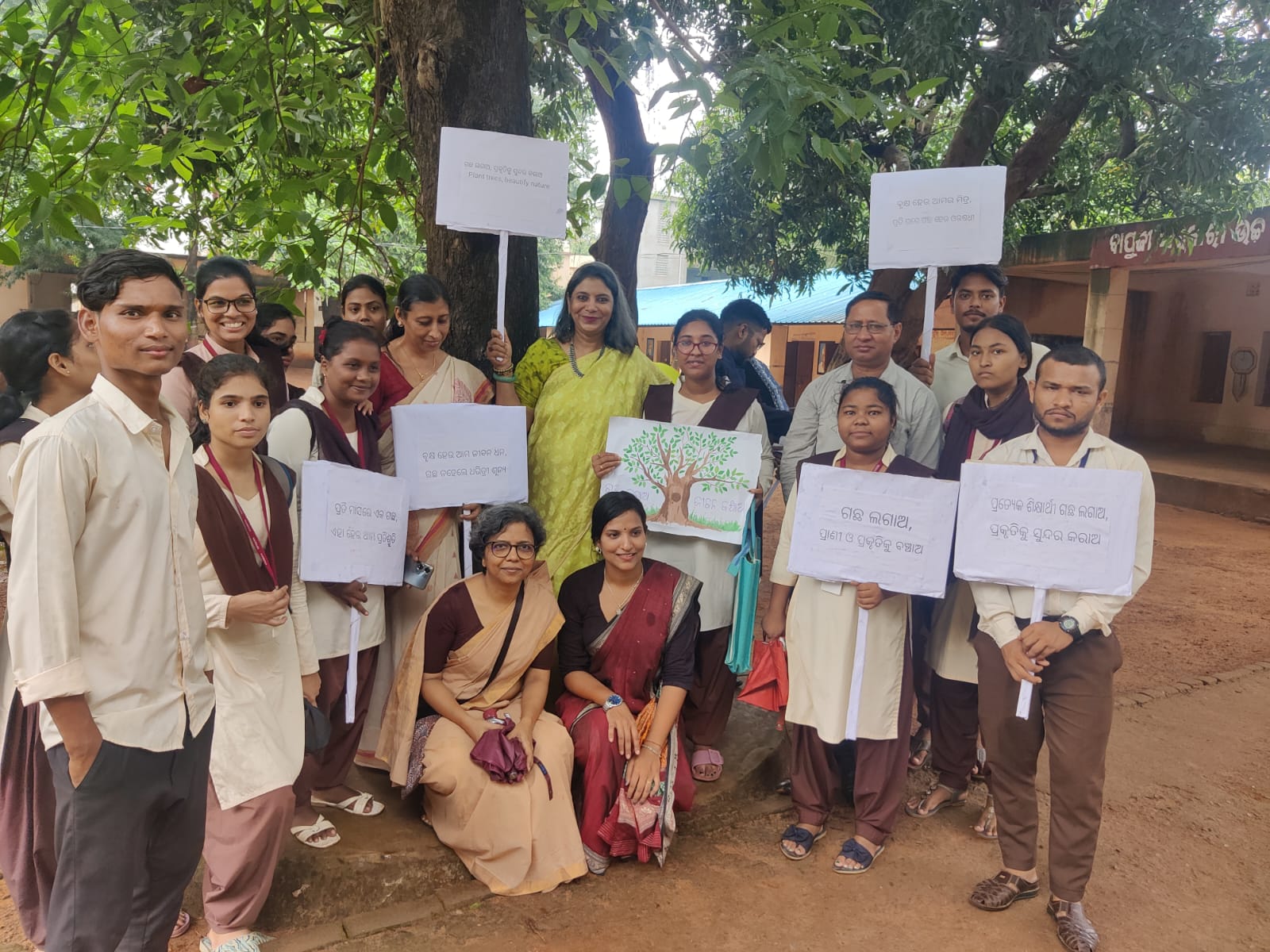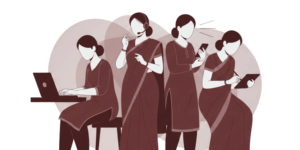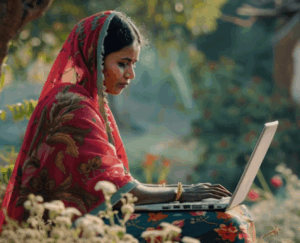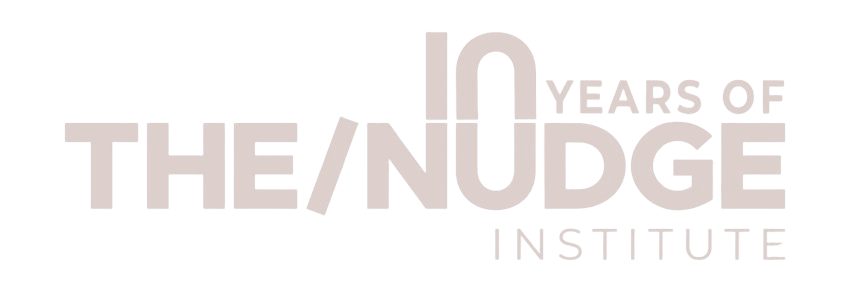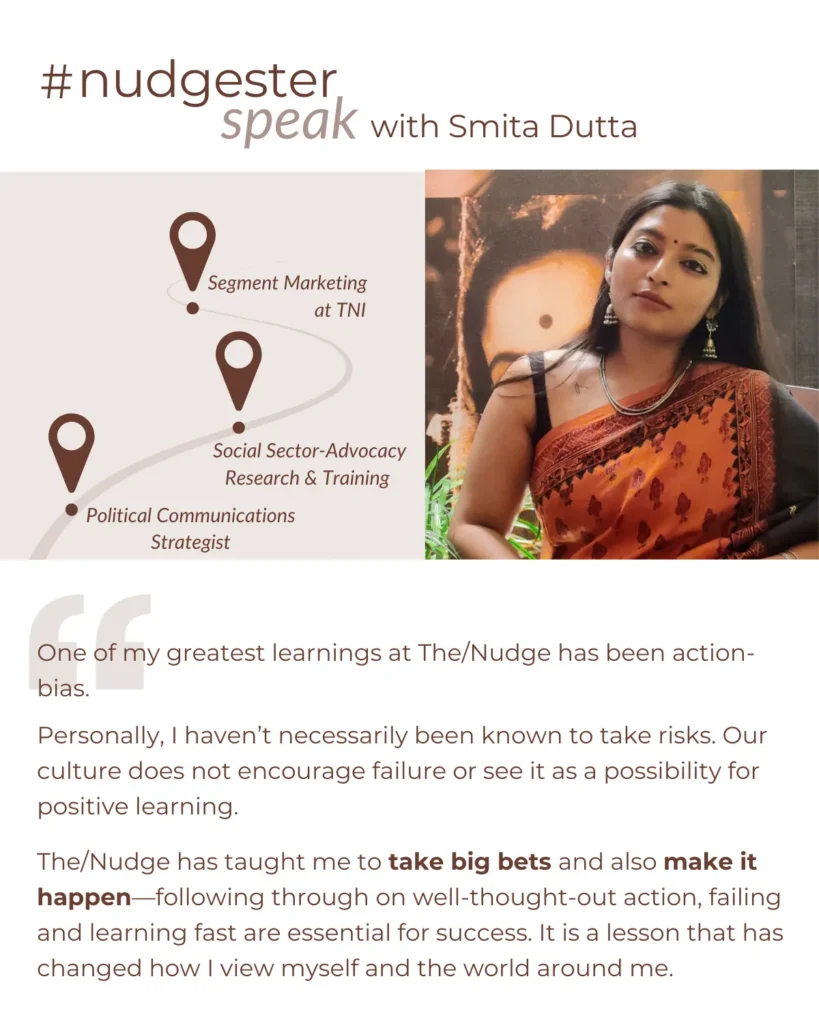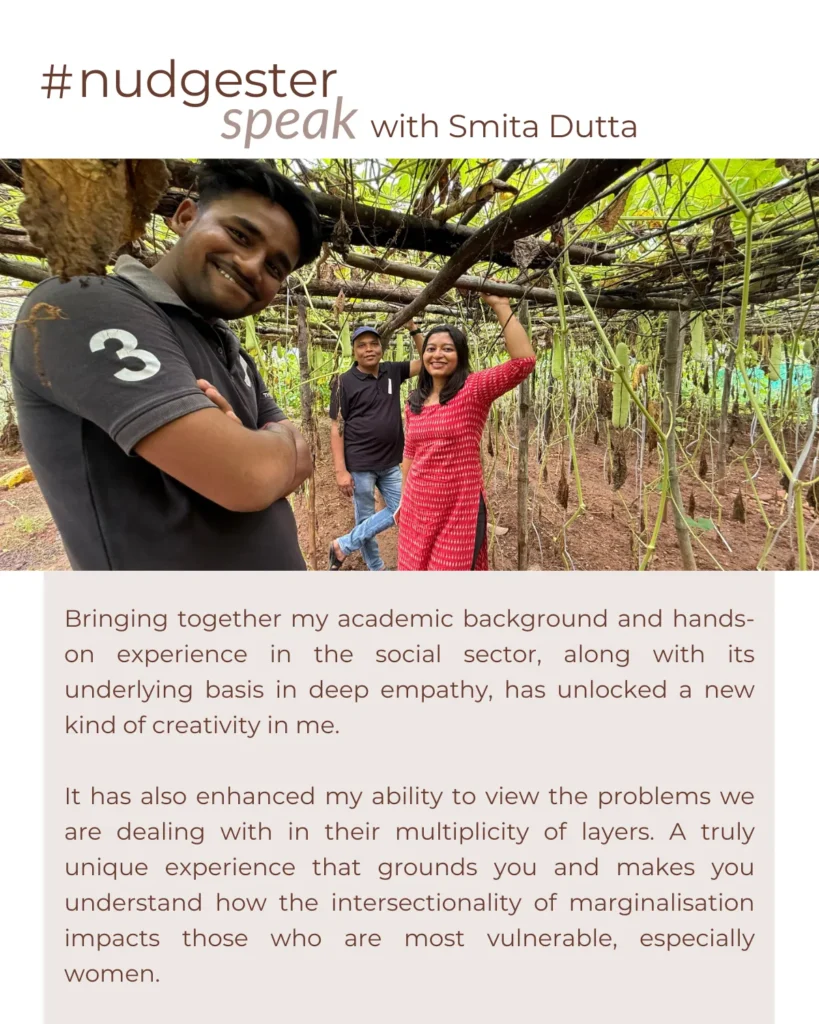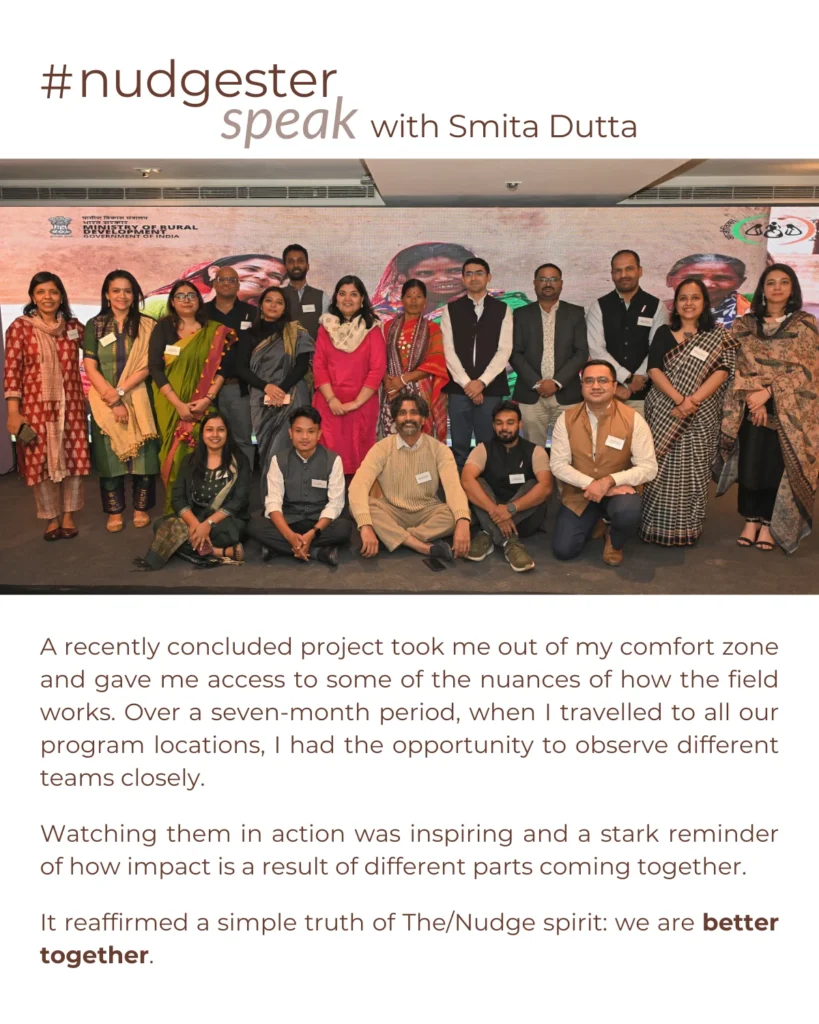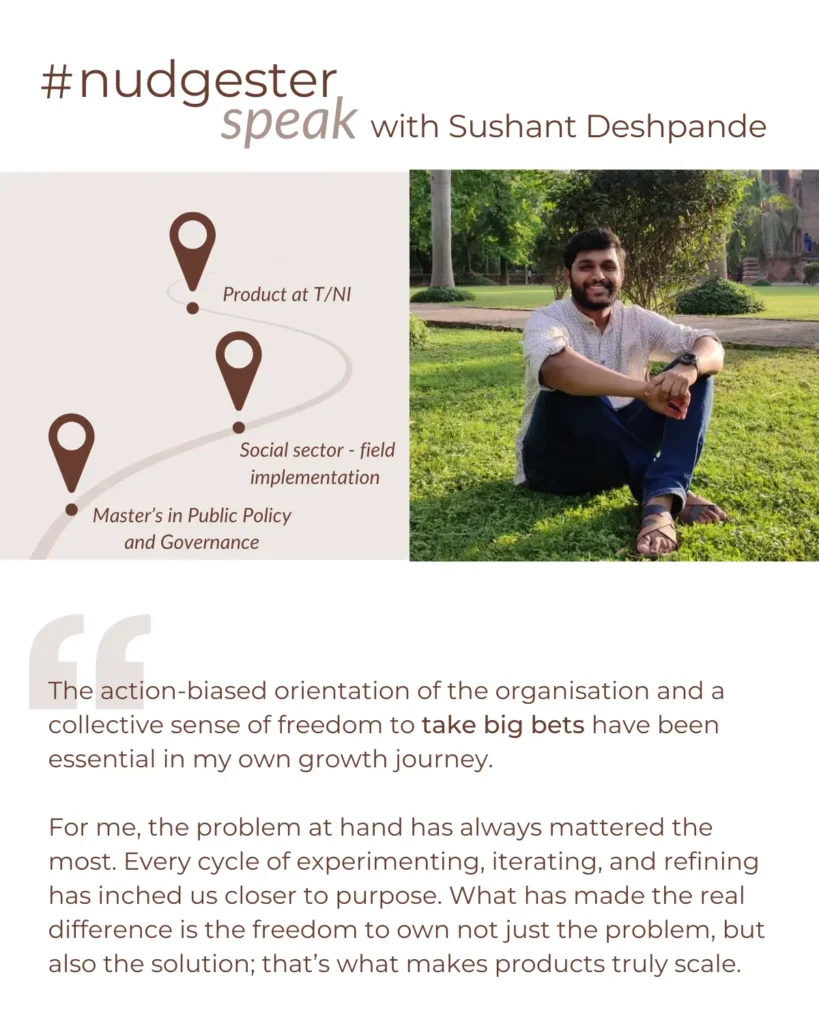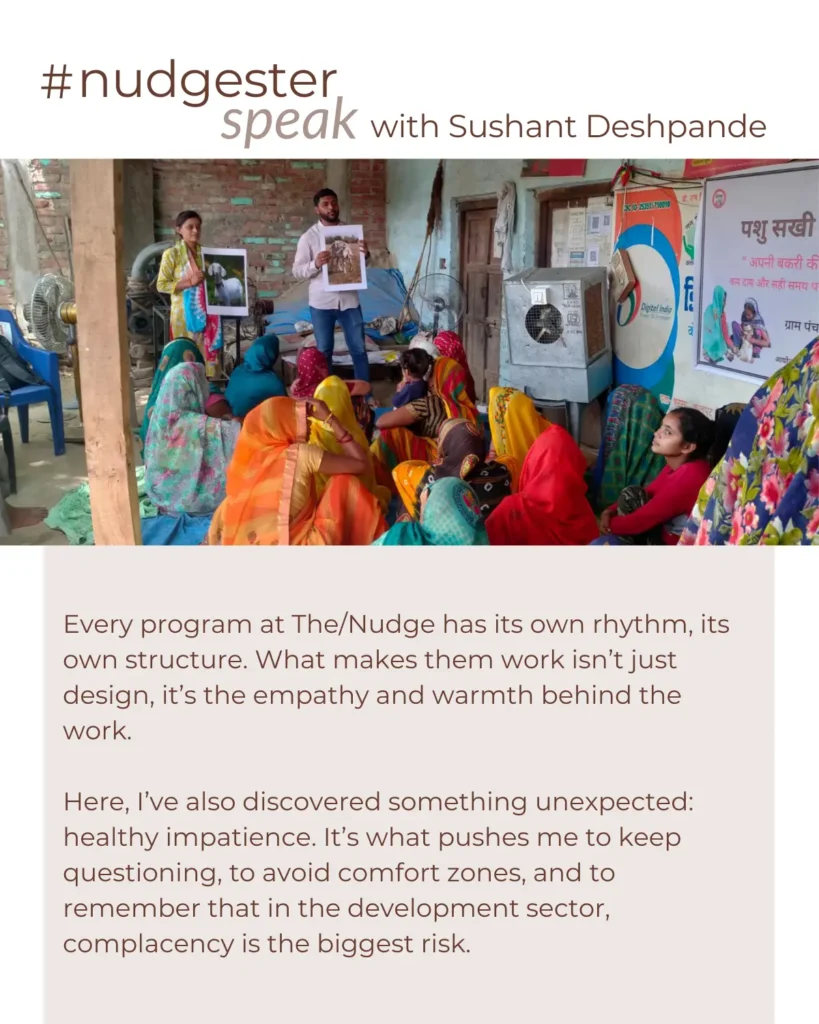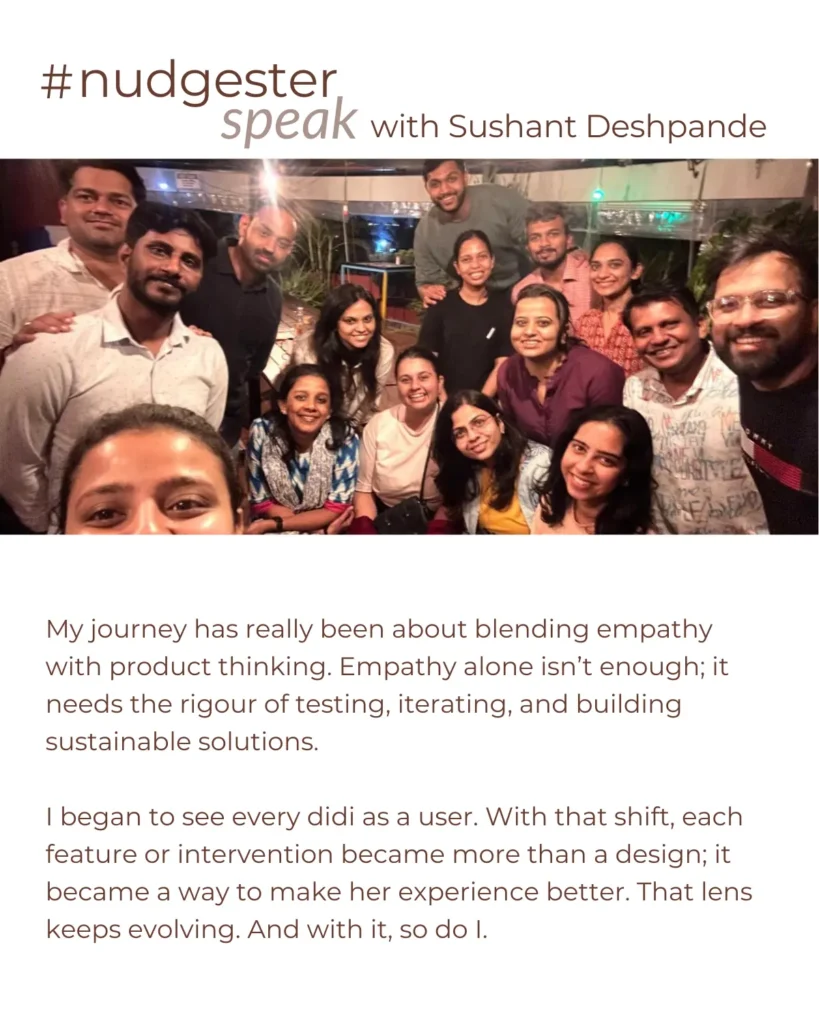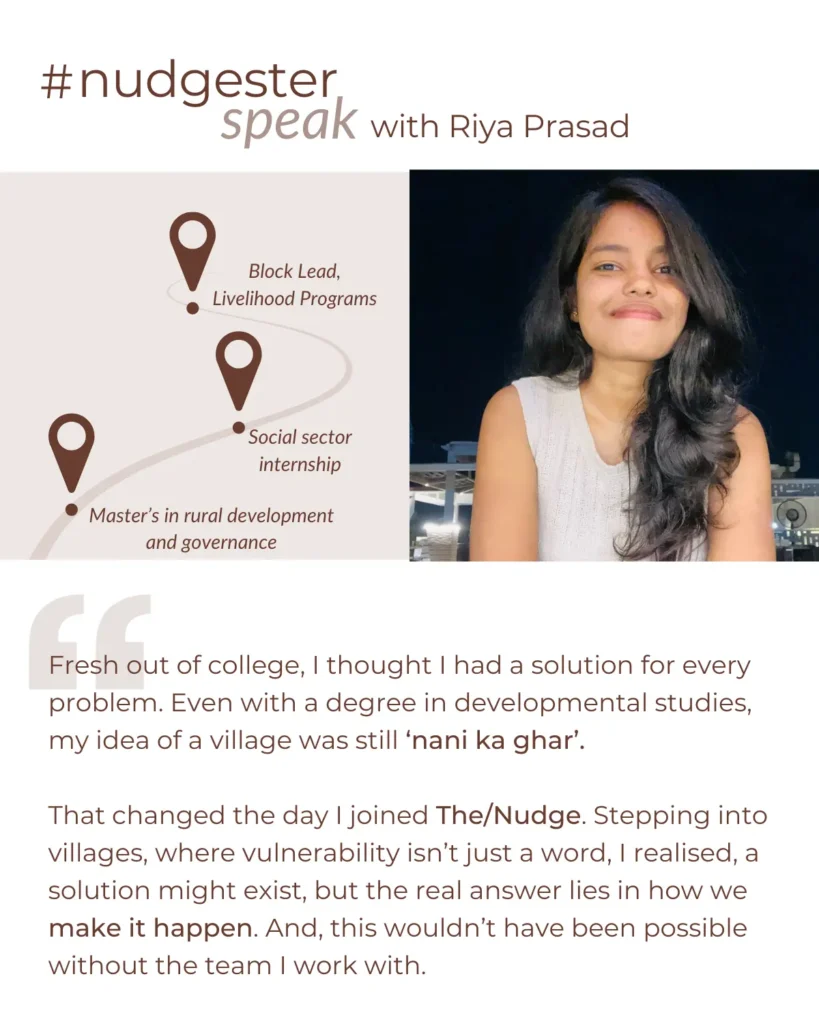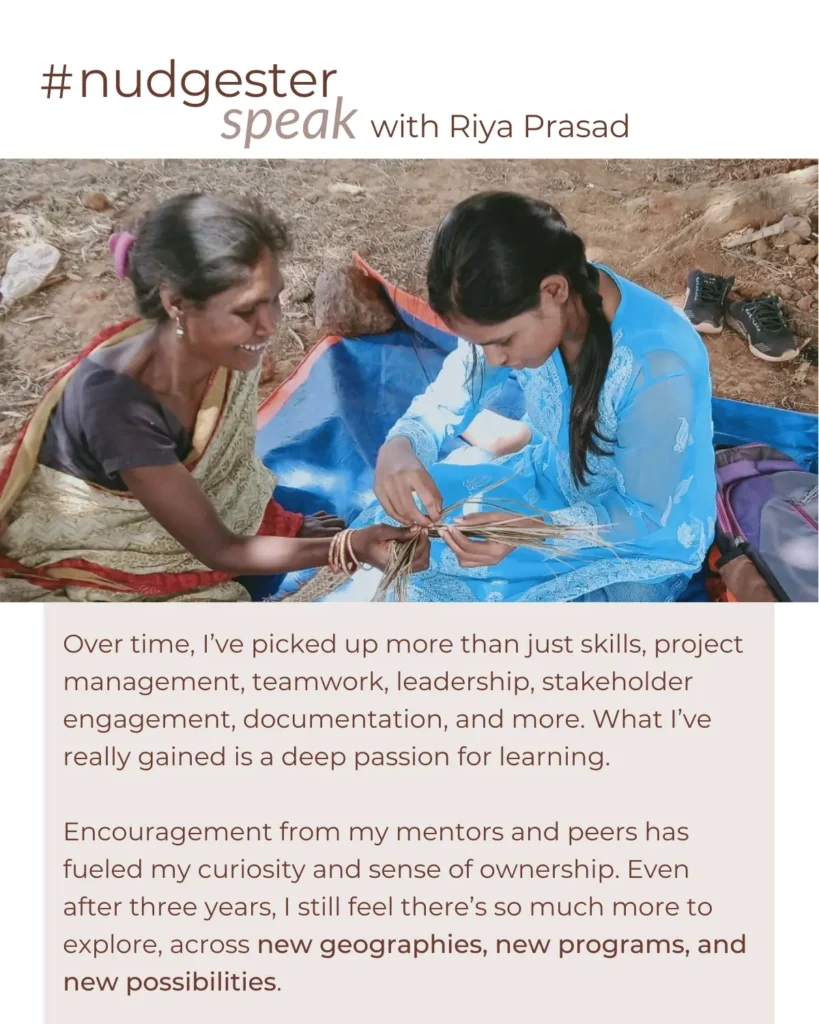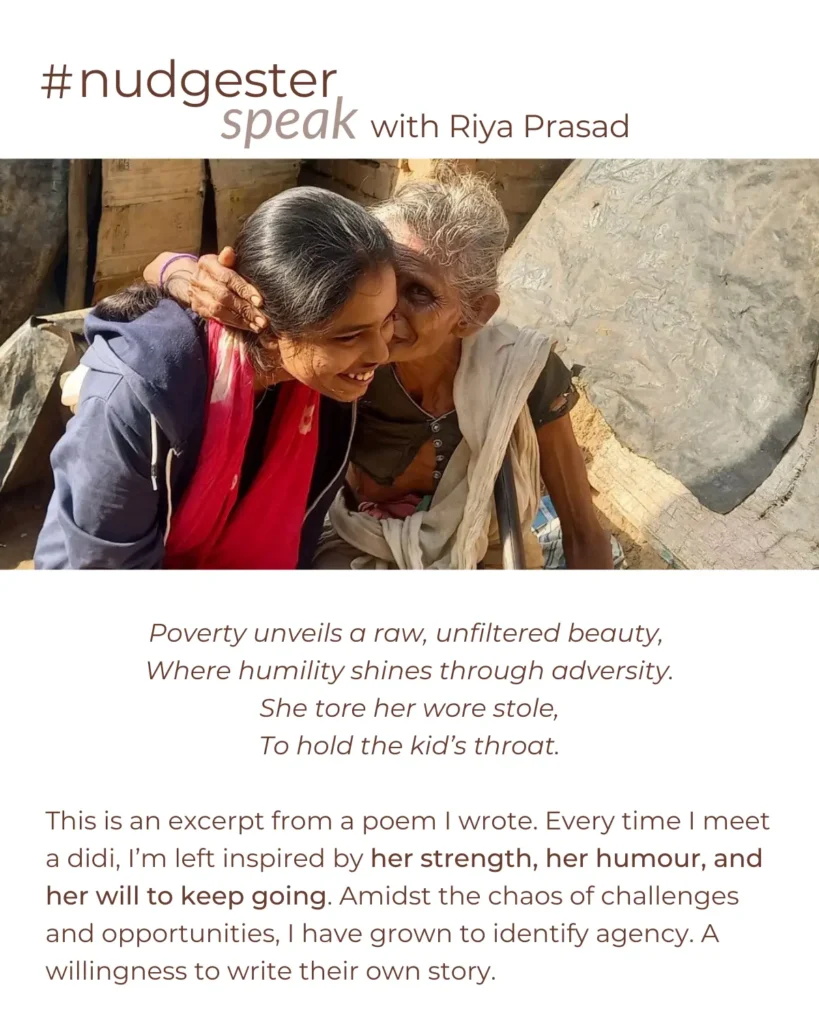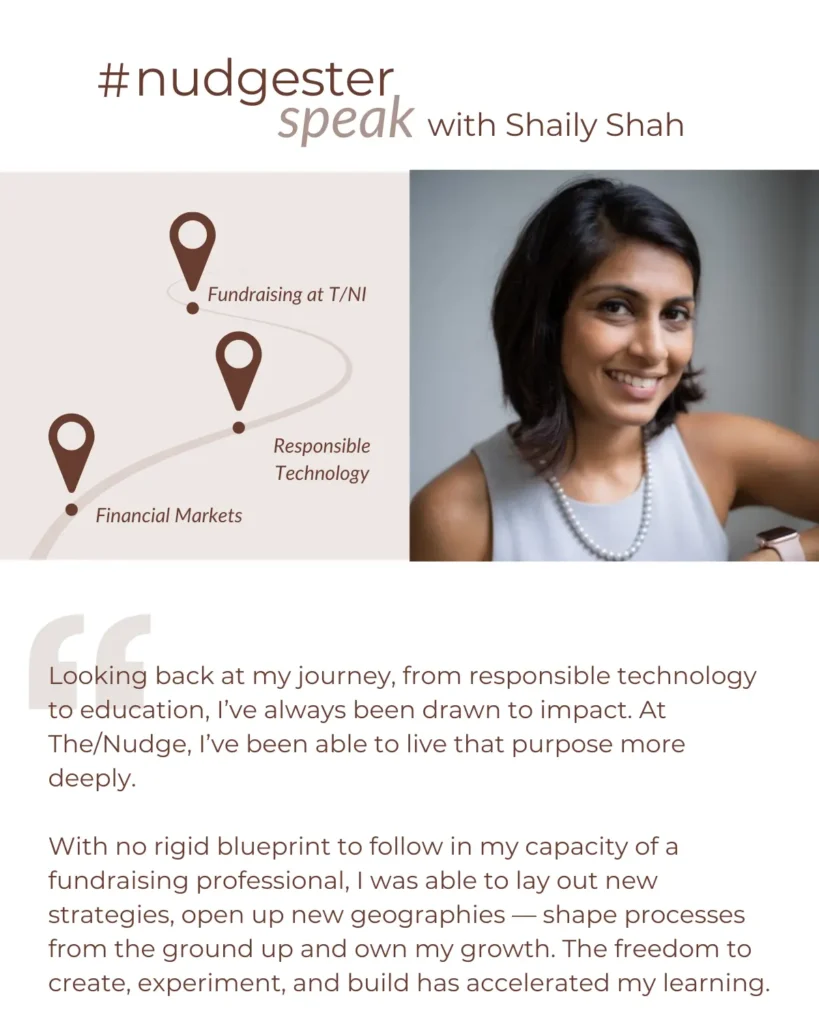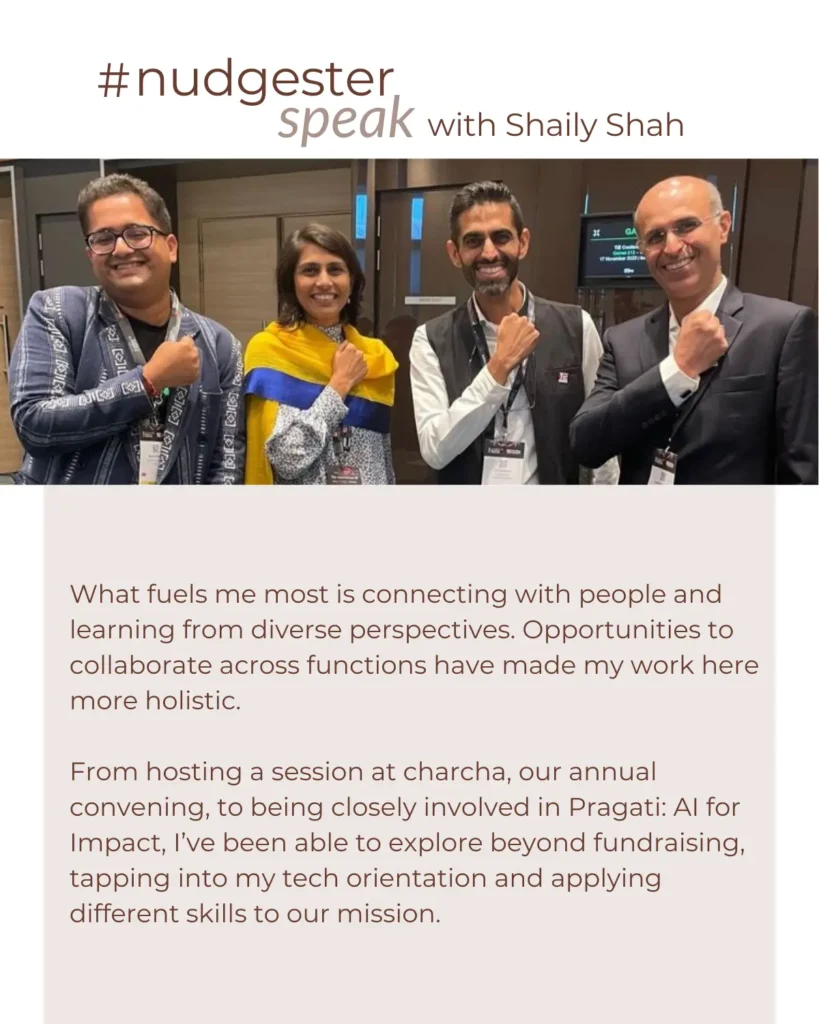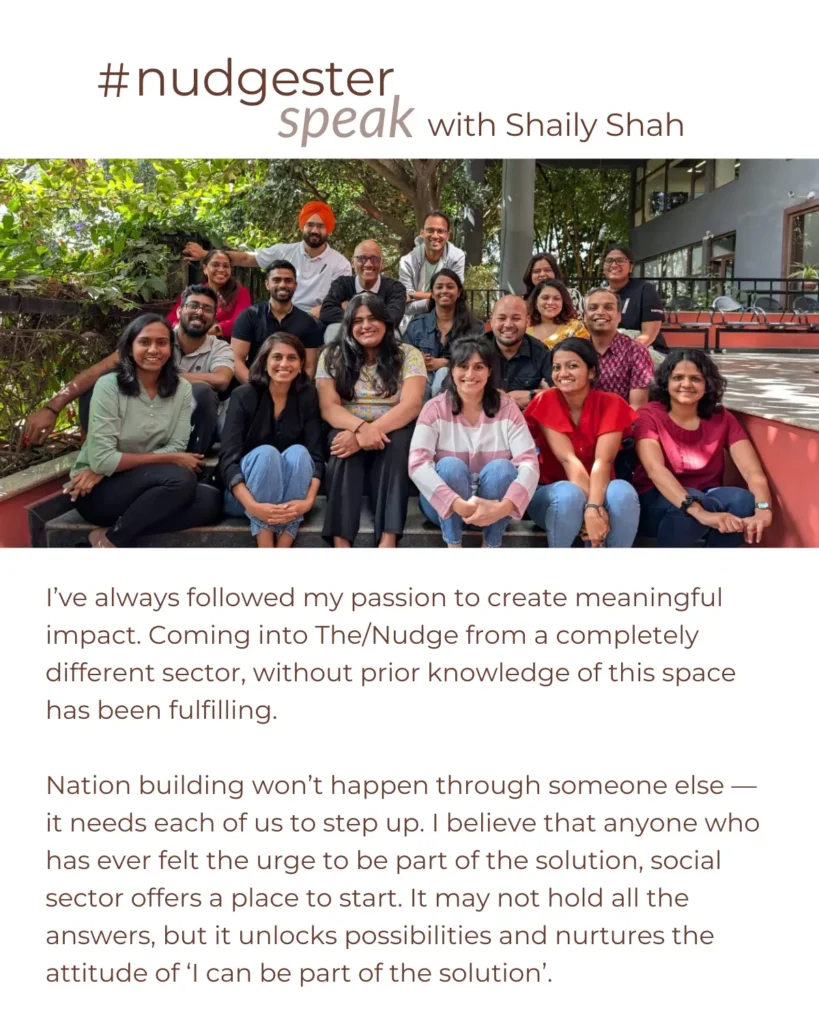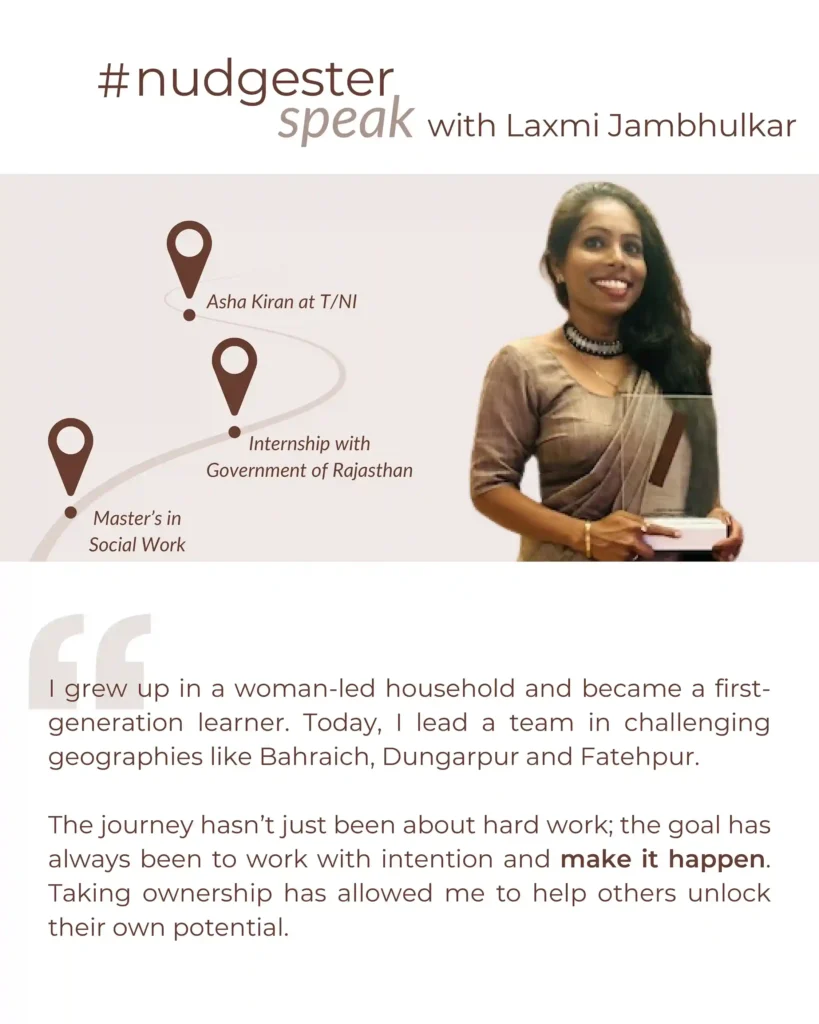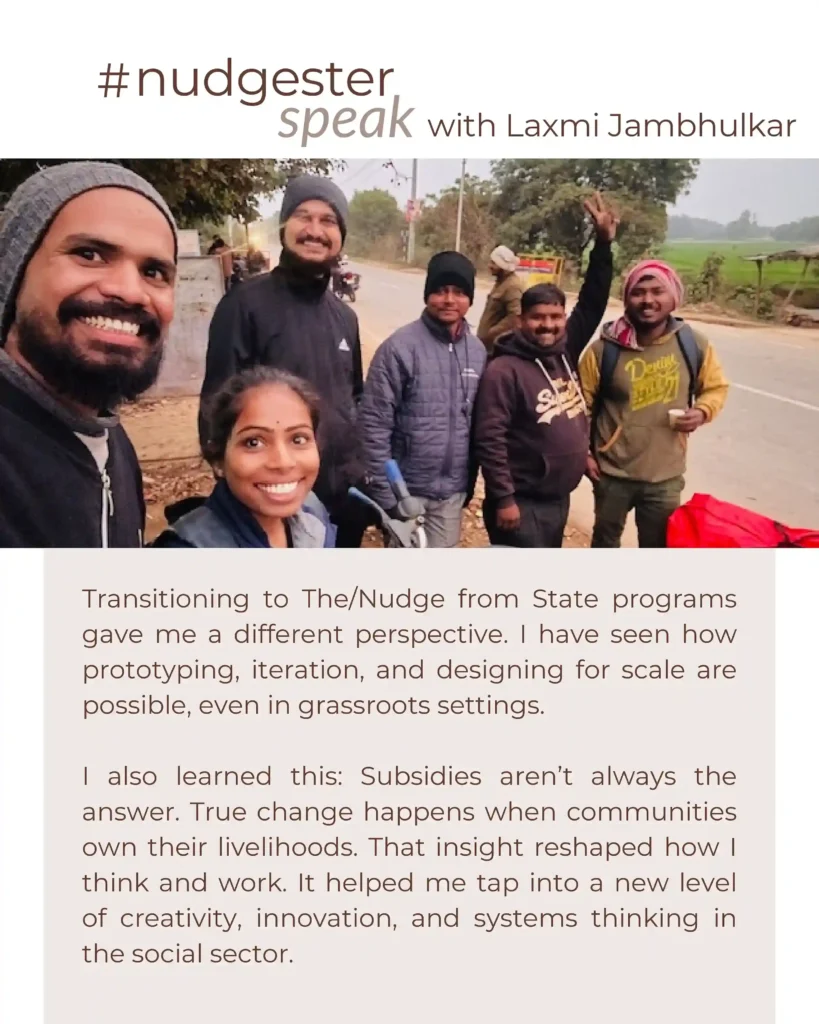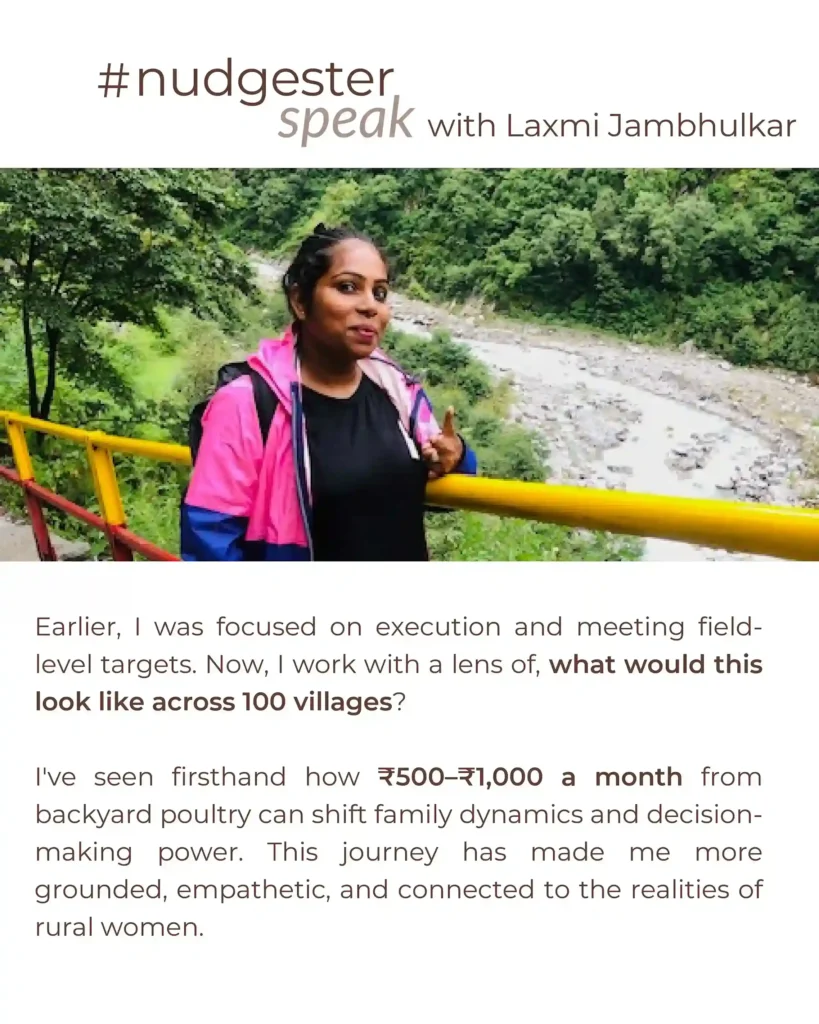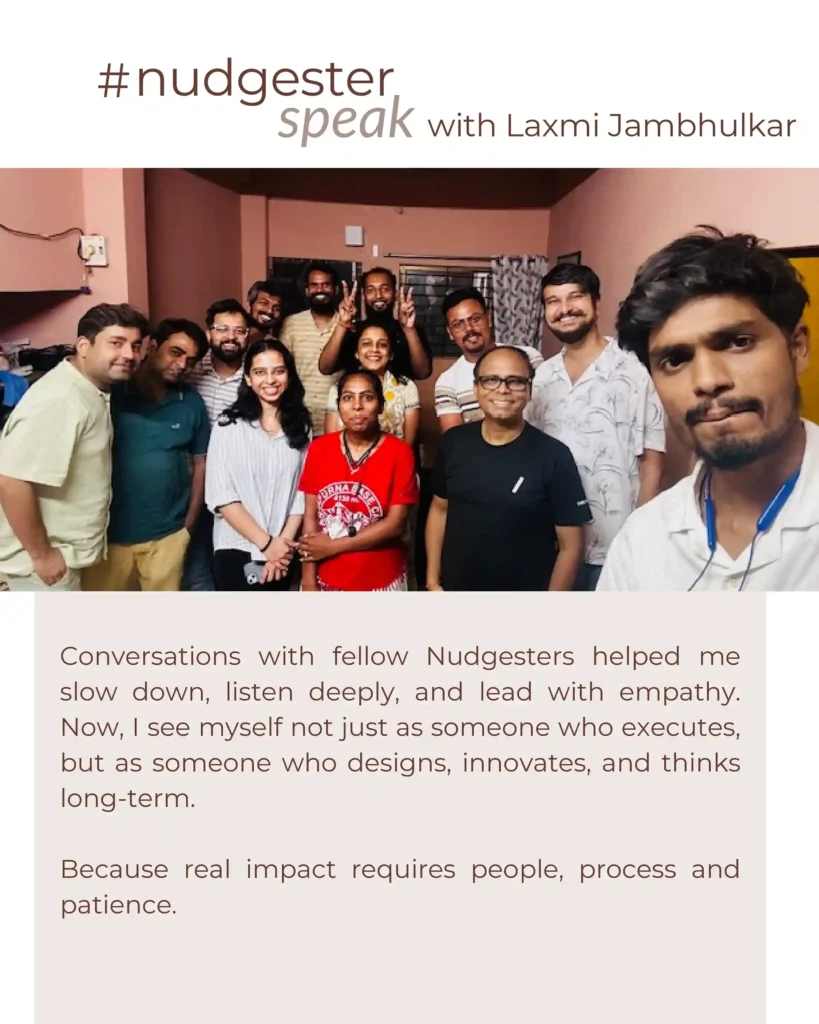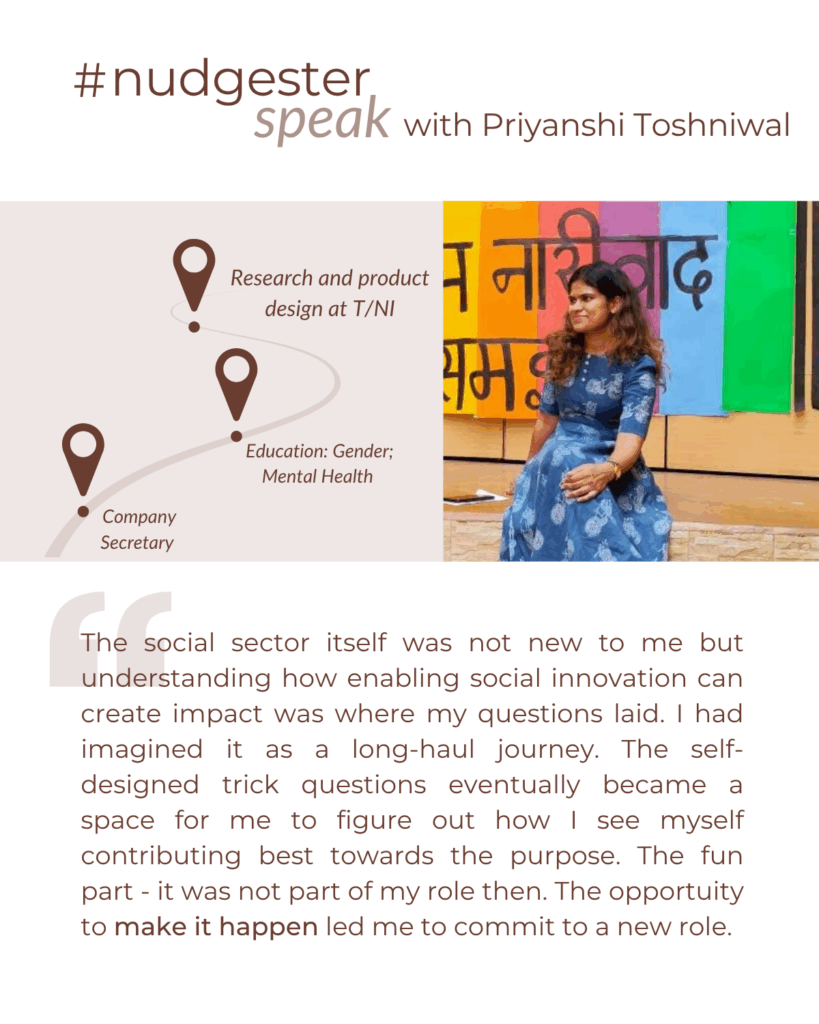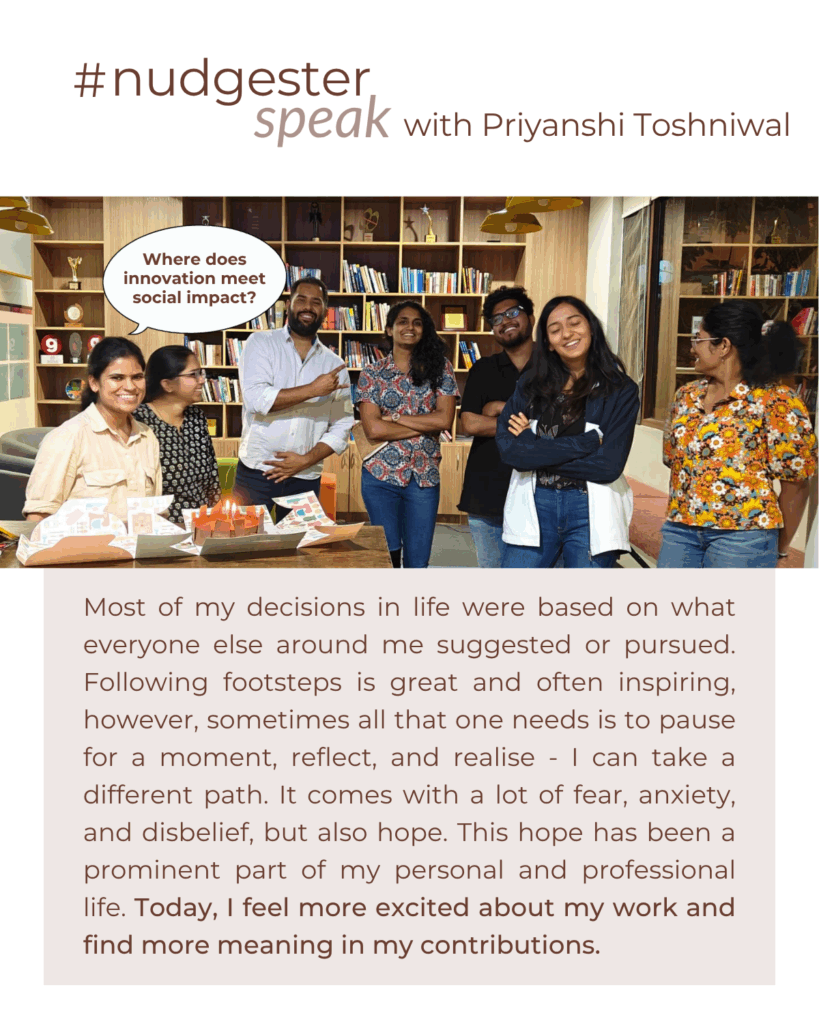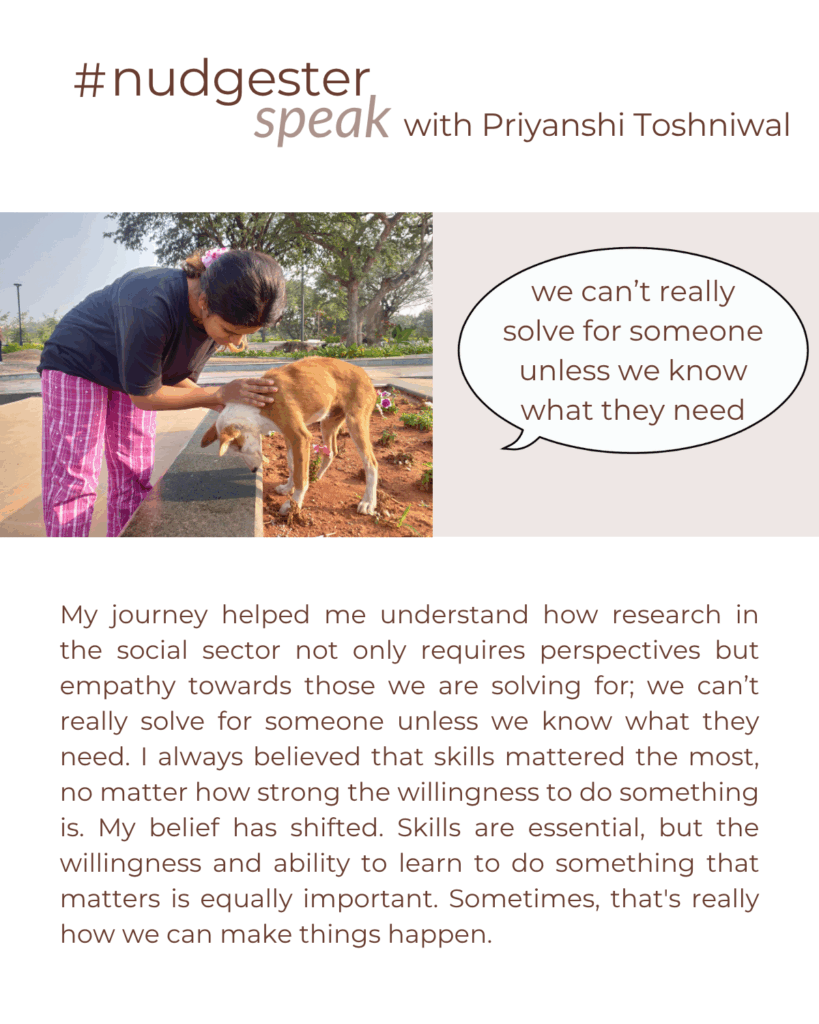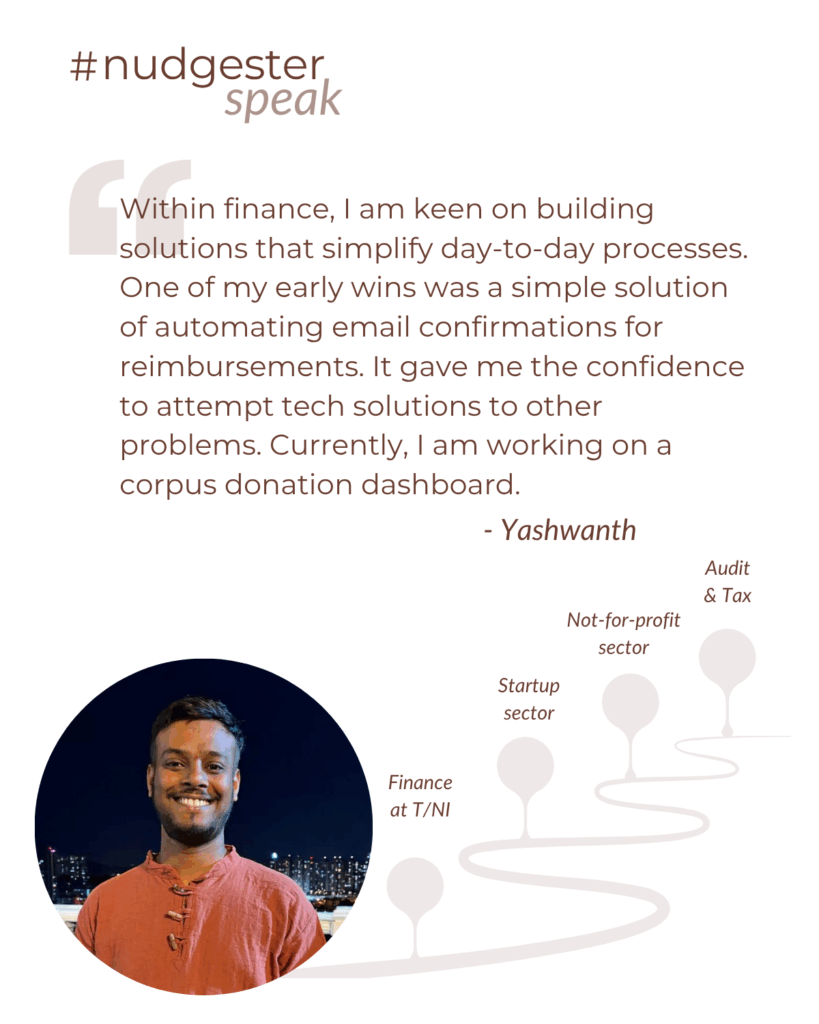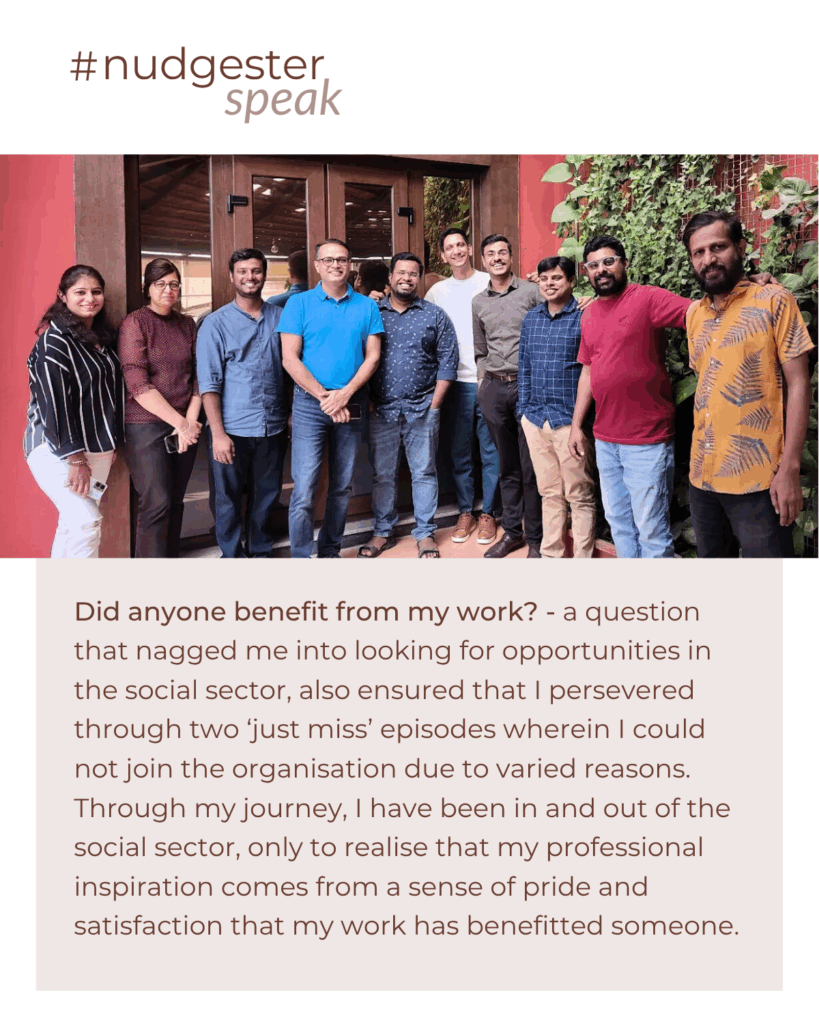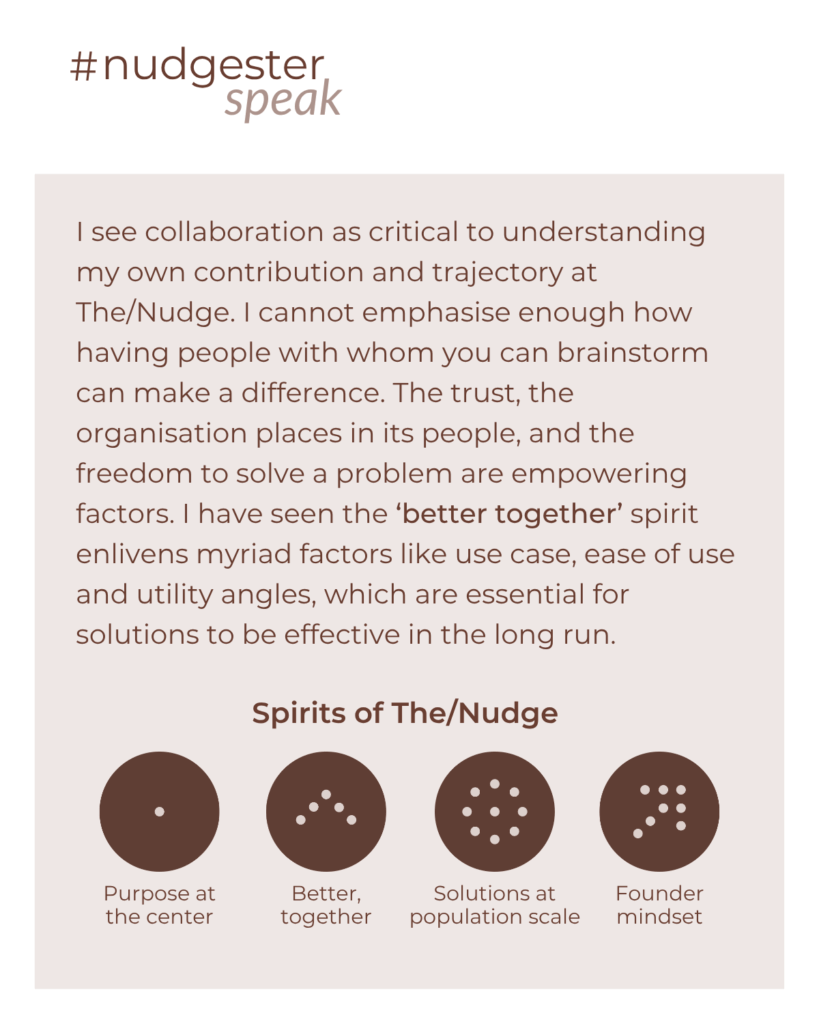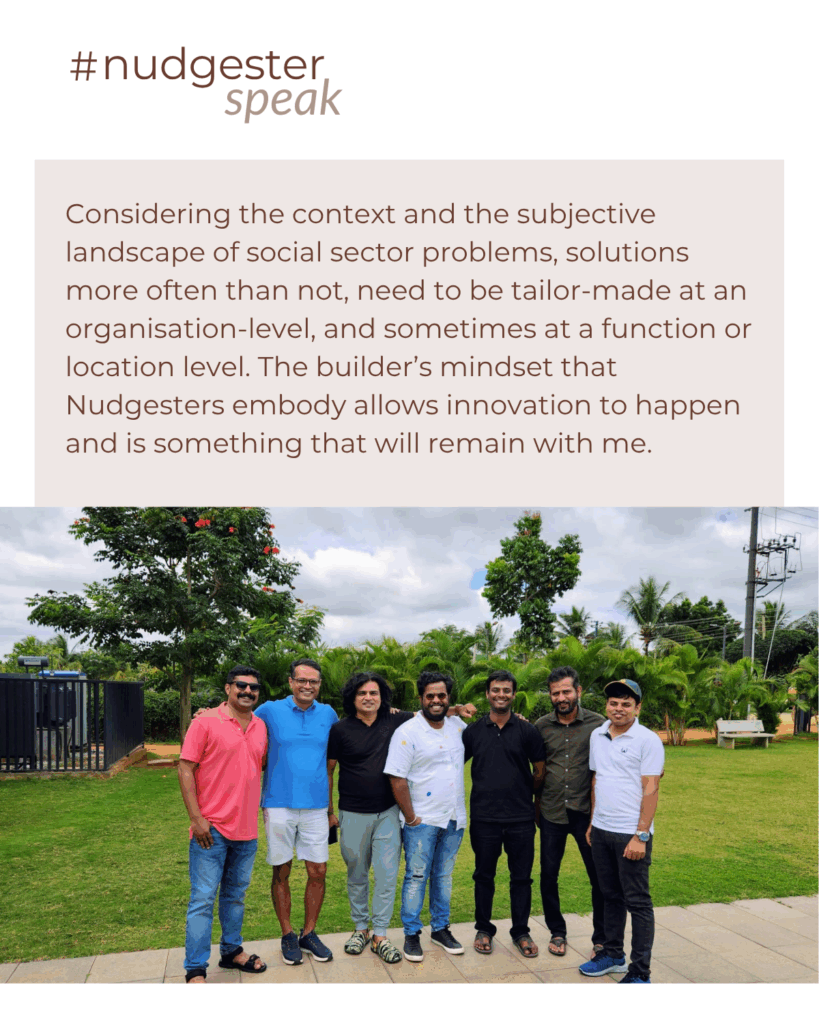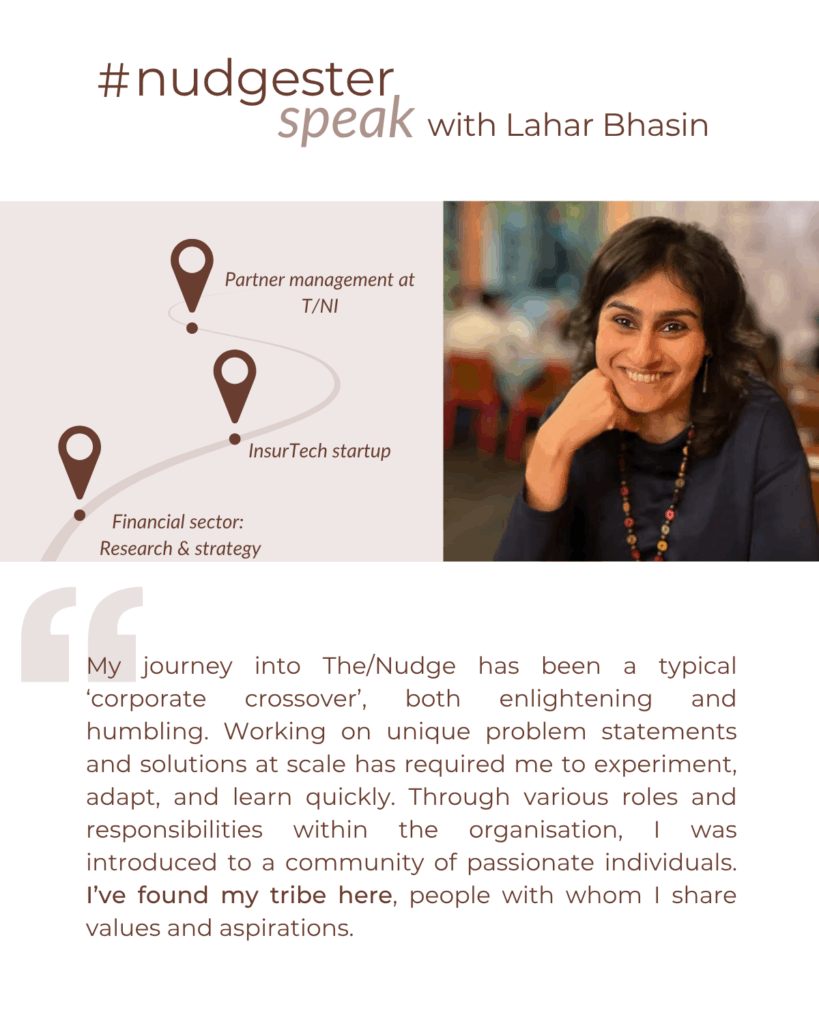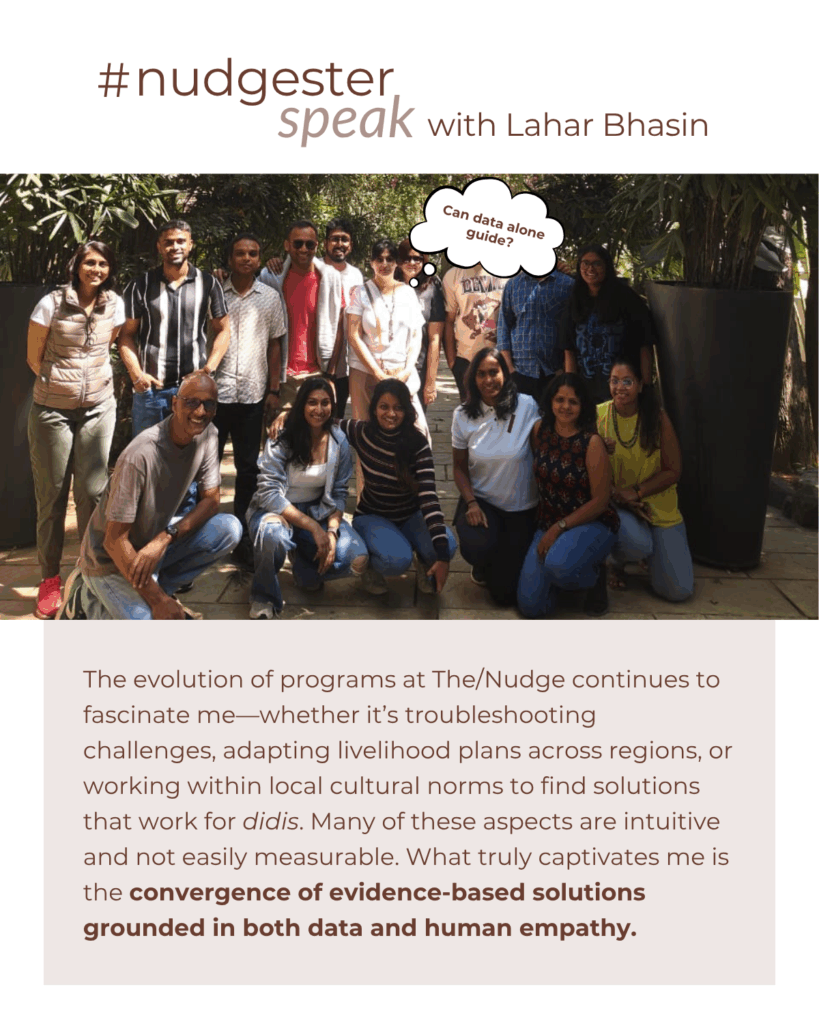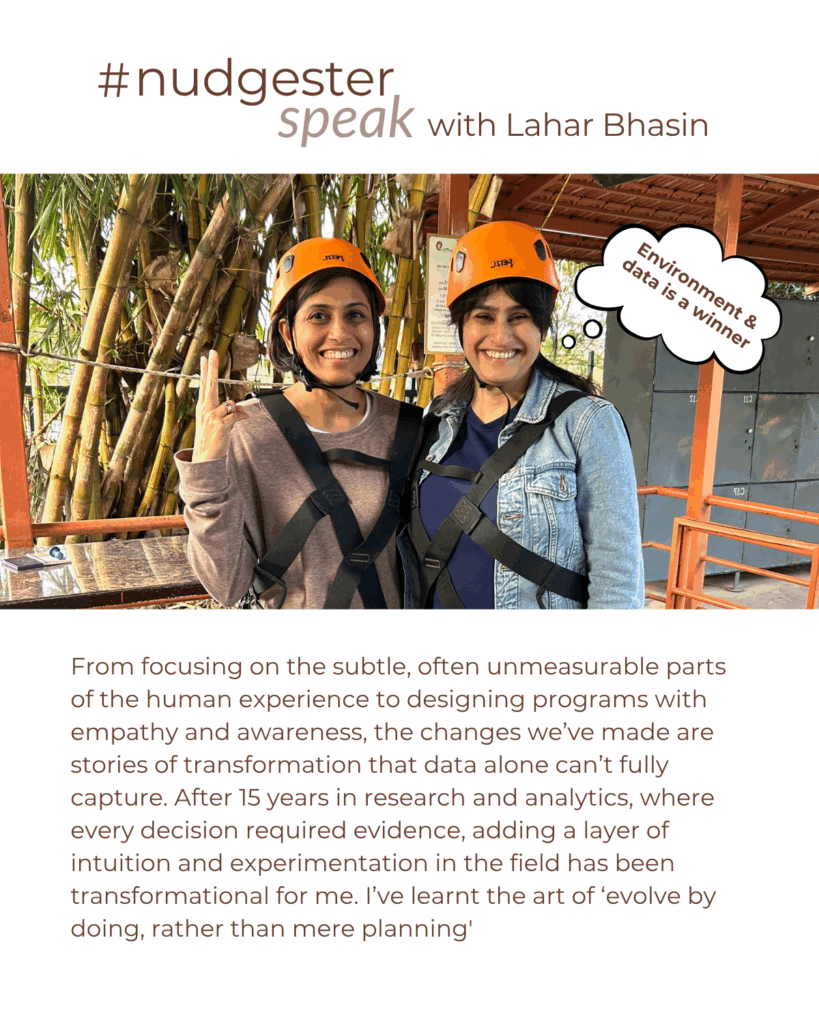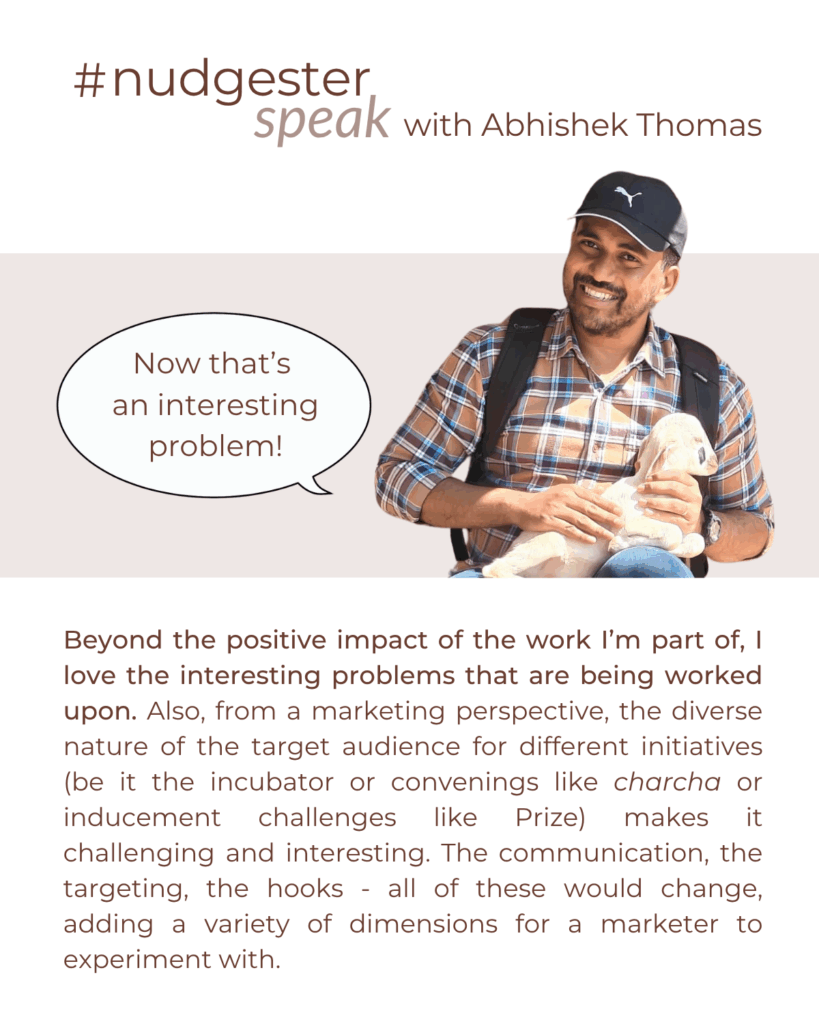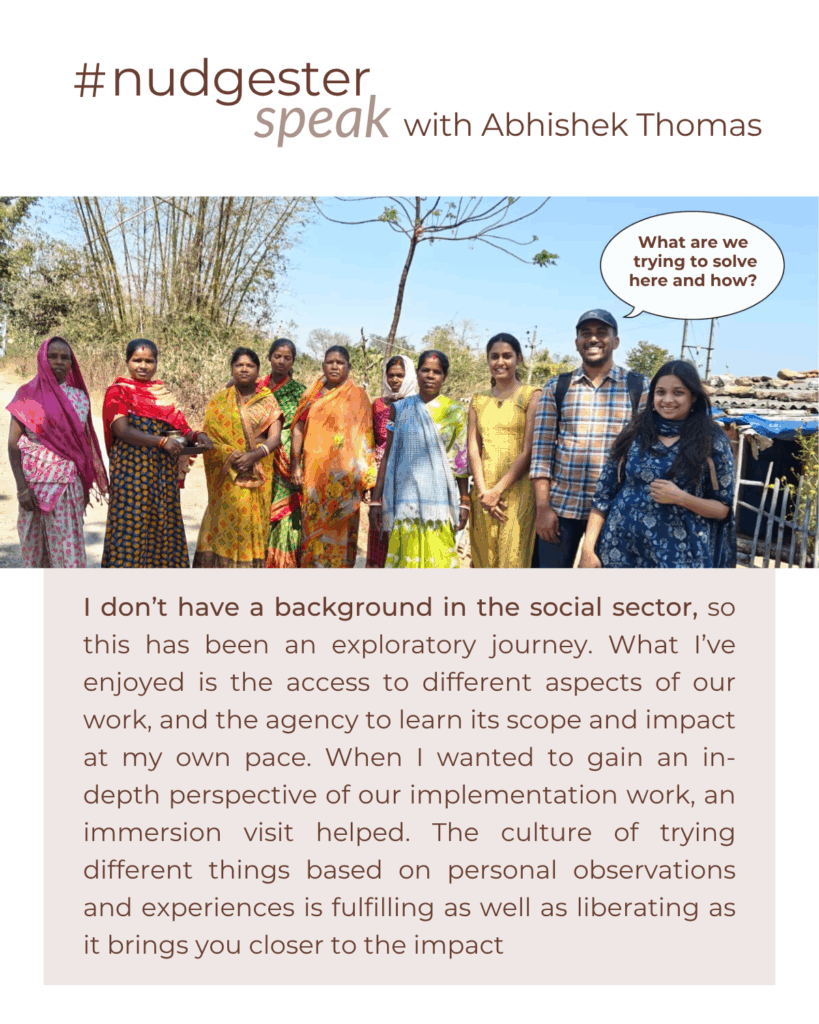From grassroots social justice to shaping national policy through the Indian Administrative Fellowship (IAF), Shubha Murthi’s journey reveals how community empowerment and dignity drive real, lasting change.
“I am not afraid to dream anymore. I am earning now, and this has given me dignity and respect. I now have the strength to change my and my children’s world.”
A woman in Odisha told me this nearly twenty years ago. Recently widowed and raising three children with no education or income, she had joined a Self-Help Group we helped set up. With collective support and a small income initiative, she regained her footing. Her words have stayed with me, not just for what they meant to her, but for what they reminded me: real change is slow, rooted in dignity, and sparked when people reclaim their agency.
Her journey mirrored my own search for purpose, a belief in community-led change and the quiet power of solidarity. Over three decades in civil society and humanitarian work, I’ve seen how lasting impact begins from the ground up. Today, through the Indian Administrative Fellowship (IAF), I work closely with the government, bringing grassroots insights into policy. This shift from field to policy isn’t a departure, but a natural progression. It’s the same commitment to dignity, inclusion, and community ownership, just at a different table.
From software to social justice
My journey began at 22 years as a trained software developer stepping into the world of civil society at a time when such choices were rarely understood or accepted. But I was drawn to something deeper. Over the past 32 years, I’ve worked with families, children, and communities across 50+ countries. From tsunami rehabilitation to earthquake recovery, each experience taught me about survival, justice, gratitude, and the quiet strength of everyday people.
Leading over 1,500 projects, including my time at SOS Children’s Villages International, taught me that real impact isn’t just about scale. It’s about how culture, language, and lived experience shape both the problems we face and the solutions we build. At SOS, a global organization in 136 countries, I designed programs for children, youth, women, and communities. It was heartbreaking to witness the realities many endured, but deeply fulfilling to help restore identity and dignity through meaningful interventions.
What stands out isn’t just the diversity of places or roles but the deeper understanding that social justice, inclusion, and resilience are built when we truly listen, across boundaries of culture, language, and belief.
Transitioning to policy: The IAF experience
Joining the IAF marked a major turning point. Unlike my previous roles in direct implementation, this position required immersion in policy formulation and systemic reform. Working from within the government offered both scale and complexity, alongside a deep learning curve.

As part of the upcoming institutional reform efforts at the National Institute of Social Defence (NISD), I’m developing a Centre of Excellence framework—defining the architecture and preconditions for NISD to evolve into a nationally recognized knowledge hub. Alongside this, I’m proposing partnerships with reputed institutions to enhance the scope and quality of training content, which is vital to NISD’s core functioning. A proposal to revitalise the affiliated institutions—DAF and DAIC—has also been submitted with clear recommendations for their renewal.
Working within the government offers a front-row seat to policy making. It’s both humbling and exhilarating to have the opportunity to influence national-level decisions. I’m deeply energized by the belief that the frameworks we help build today could shape public systems for years to come.
Lessons from the frontlines of social justice
Government work comes with constant change, new people, evolving leadership, and shifting priorities. Navigating this flux has deepened my appreciation for resilience. One of the biggest challenges is the lack of visible transformation; in policy, impact often unfolds slowly, sometimes long after our work is done. Yet, I stay rooted in the long-term vision and the belief that each reform matters.
Years of working with diverse communities have taught me that social justice isn’t just about access; it’s about transforming systems. A marginalized woman in rural India faces vastly different barriers than her urban counterpart. Addressing such layered realities requires context-specific, inclusive solutions.

Community-led change is incredibly powerful. In one initiative, Text to Change, SMS messages designed around priorities identified by women themselves contributed to delaying the age of first sexual encounters, improving birth spacing, and enhancing awareness around reproductive hygiene. What made it transformative was not just the technology but how it was rooted in community choice. Whether through self-help groups launching livelihood initiatives or grassroot educators creating inclusive learning spaces, these interventions proved that social, economic, and physical well-being is most sustainably achieved when communities are in the driver’s seat of their own development.
Adapting and staying anchored
Adapting to the rhythms of bureaucracy has been one of the toughest parts of this journey. Despite years of leadership and global exposure, there were moments I felt invisible—questioning if I truly belonged in this ecosystem. But purpose kept me grounded. I stayed focused because I believed in the work, and because allies—those who saw my intent, not just my title—reminded me I wasn’t alone.
The scale of this work is humbling. The potential to influence national policy is both daunting and deeply energizing. It excites me to know that the frameworks we build today could shape systems for years to come.
At the same time, the nature of government—constant transitions, new secretaries, shifting priorities—requires deep reserves of resilience. And policy work comes with its own paradox: the further you are from implementation, the harder it is to see impact firsthand. Yet, I’ve learned to trust the slow, often invisible work of systems change and the collective intent behind each reform.
Final reflections
This journey from the field to the policy desk has been both challenging and rewarding. Transitioning from direct implementation to influencing policy has taught me to value long-term, meaningful change. While I may not always see the final outcome of my work, I know each contribution is a step toward a more just society.
Though I’m no longer in every village, I carry each story with me—of hope, dreams, and achievements. My belief remains unchanged: true empowerment starts with respect, dignity, inclusion, and community ownership. Whether designing policy, advocating for grassroots innovation, or listening to a parent in a remote village, my vision is clear: to help build a world where systems serve people, not the other way around.

